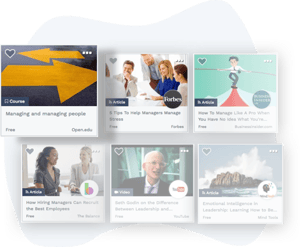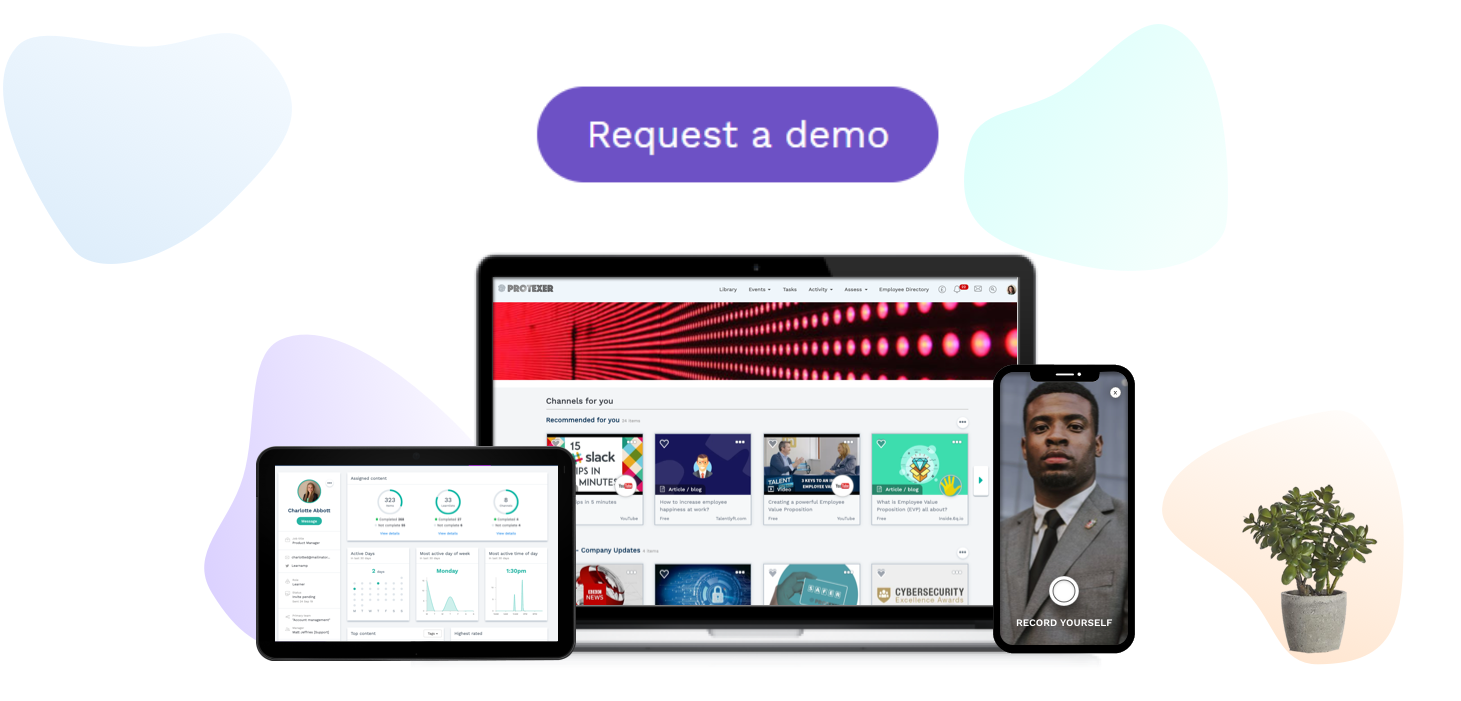Learning doesn’t happen in a vacuum. You'll find that employees are far more motivated to learn if they know that their learning is valued by their employers.
In particular, employees want to know if their managers will recognise and reward them for learning. 70% of the difference in team engagement comes down to the team manager1. So, to encourage employees to engage with learning, you need managers who are invested in the learning and development of their teams.
But how do you go about building the systems that help your managers support team learning? Start with these helpful tips.
Create opportunities to apply learning
As much as 90% of learning happens on the job, rather than through formal training programs2. Managers can encourage employee learning by providing new challenges, assigning projects with opportunities for development, and offering coaching and mentoring to help keep employees on course.
 If you’re using an LXP or next-gen learning platform to deliver learning materials, your managers will have even more opportunities to promote and steer employee learning.
If you’re using an LXP or next-gen learning platform to deliver learning materials, your managers will have even more opportunities to promote and steer employee learning.
For instance, managers could work with employees to create individual learning pathways and set team-wide milestones.
This shows that the manager is genuinely interested in the learning and helps ensure that employee learning ties closely into team objectives and management priorities.
Empower managers with a decentralised approach to Learning and Development
To truly involve managers in employee learning, you need to make sure they have the right tools.
A traditional, top-down learning management system (LMS) is not going to help managers drive team learning.
Line managers are in a unique position to assess their team’s performance and identify skills gaps. They need technology that will empower them to decide what their team needs or respond to learning requests quickly and easily.
With an LXP, or a next-gen learning platform like Learn Amp, it becomes far easier for managers to direct their teams to the right learning resources.
If they need to train their teams on a specific point, they can even self-record videos and create handy notes, rather than spending time updating each individual team member – this becomes especially useful for those of us still working remotely.
Encourage employees to drive their own learning
Another advantage of a decentralised L&D program is that employees are able to direct their own learning. Great managers know when and what their employees are learning – but they also know when to step back and allow employees to lead their own development process.
If you make learning resources incredibly easy for learners to find, they won’t need to constantly ask their managers for guidance.
Cutting down on these small, niggling team training tasks should make it easier for managers to think more strategically about their team’s learning and development needs.
Link learning and development to performance
One of the most important ways that managers can encourage learning in their teams is to link L&D directly to performance.
Managers should be sitting down with each direct report to identify career goals and skills gaps, and then help them build personalized learning pathways to achieve their objectives.
If a team member is struggling with an issue that is impacting their performance, their line manager must be able to step in and help them find the resources to address it – not just outsource the problem to HR.
Efforts to learn and improve performance should be recognized during 1-1 feedback sessions and in performance appraisals.
You’ll also need to make sure your managers have access to learning analytics, to see how their teams are using learning resources, spot any issues, and reward and recognize effort and achievement.
"Treat learning like the investment it is – and make sure that your business gets its value for money."
This may sound like a lot of work for busy managers – but it’s worth it.
Involving managers in employee learning is not only a great way to make sure that employees are engaged with learning – it is also vital to employee retention.
For instance, Gallup found that “opportunities to learn and grow” was the single most important factor for millennials when evaluating jobs3. According to the report, employees want to work for a manager “who will invest in their development.”
Treat learning like the investment it is – and make sure that your business gets its value for money.
Request a Learn Amp demo to find out how our next-gen learning platform can help your managers support team learning.
Resources
2. Jim Clifton and Jim Harter, It’s the Manager, New York: Gallup Press, p. 105

.jpg)



